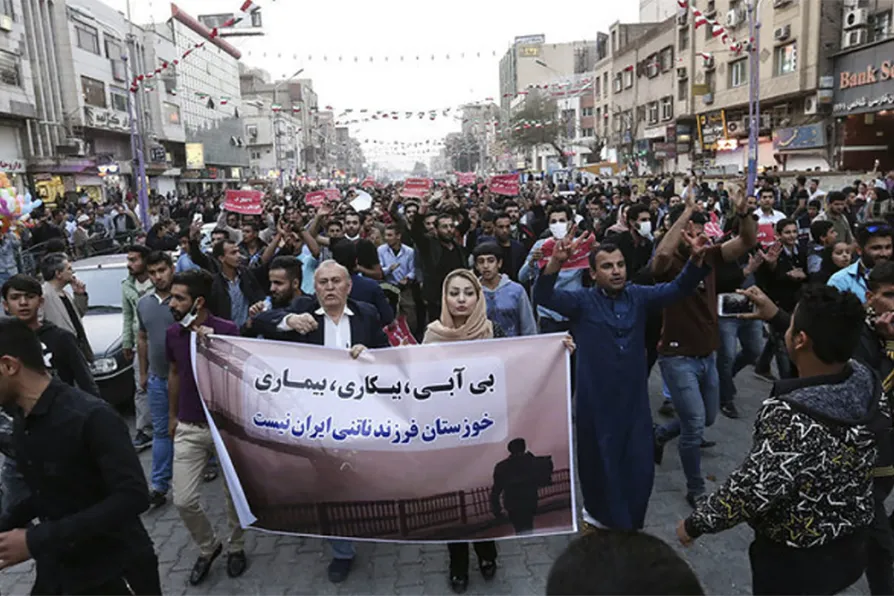As tens of thousands return to the streets for the first national Palestine march of 2026, this movement refuses to be sidelined or silenced, says PETER LEARY

 Protesters march with a banner reading ‘Without water, without jobs, without health. Khuzestan is not Iran’s stepchild!’
Protesters march with a banner reading ‘Without water, without jobs, without health. Khuzestan is not Iran’s stepchild!’
OVER recent days, an already tense situation in Iran’s south-western Khuzestan province, the centre of the country’s oil industry, has deteriorated further with growing protests by locals over breakdowns in critical infrastructure – principally severe water shortages – amid the heat of another sweltering summer and warnings that the country faces its most severe drought in half a century.
Protests have been directed against the nationwide water and power shortages which have acutely affected central and southern Iran, and Khuzestan in particular, and the insufferable conditions people there are having to endure in stifling heat – often in excess of 50°C — including a lack of access to clean water and the dangerously unsanitary situation arising as a result, as well as increasingly frequent power blackouts.
According to widespread reports from on the ground in Khuzestan, at least three young men have been killed by regime security forces at protests there within the last week. Scores of protesters have been wounded and are receiving treatment.

The Committee for the Defence of Iranian People’s Rights (Codir) welcomes demonstrations across Iran, which have put pressure upon the theocratic dictatorship, but warns against intervention by the United States to force Iran in a particular direction

Payam Solhtalab talks to GAWAIN LITTLE, general secretary of Codir, about the connection between the struggle for peace, against banking and economic sanctions, and the threat of a further military attack by the US/Israel axis on Iran

The Islamic Republic is attempting to deflect from its own failures with a scapegoating campaign against vulnerable and impoverished migrants, writes JAMSHID AHMADI











